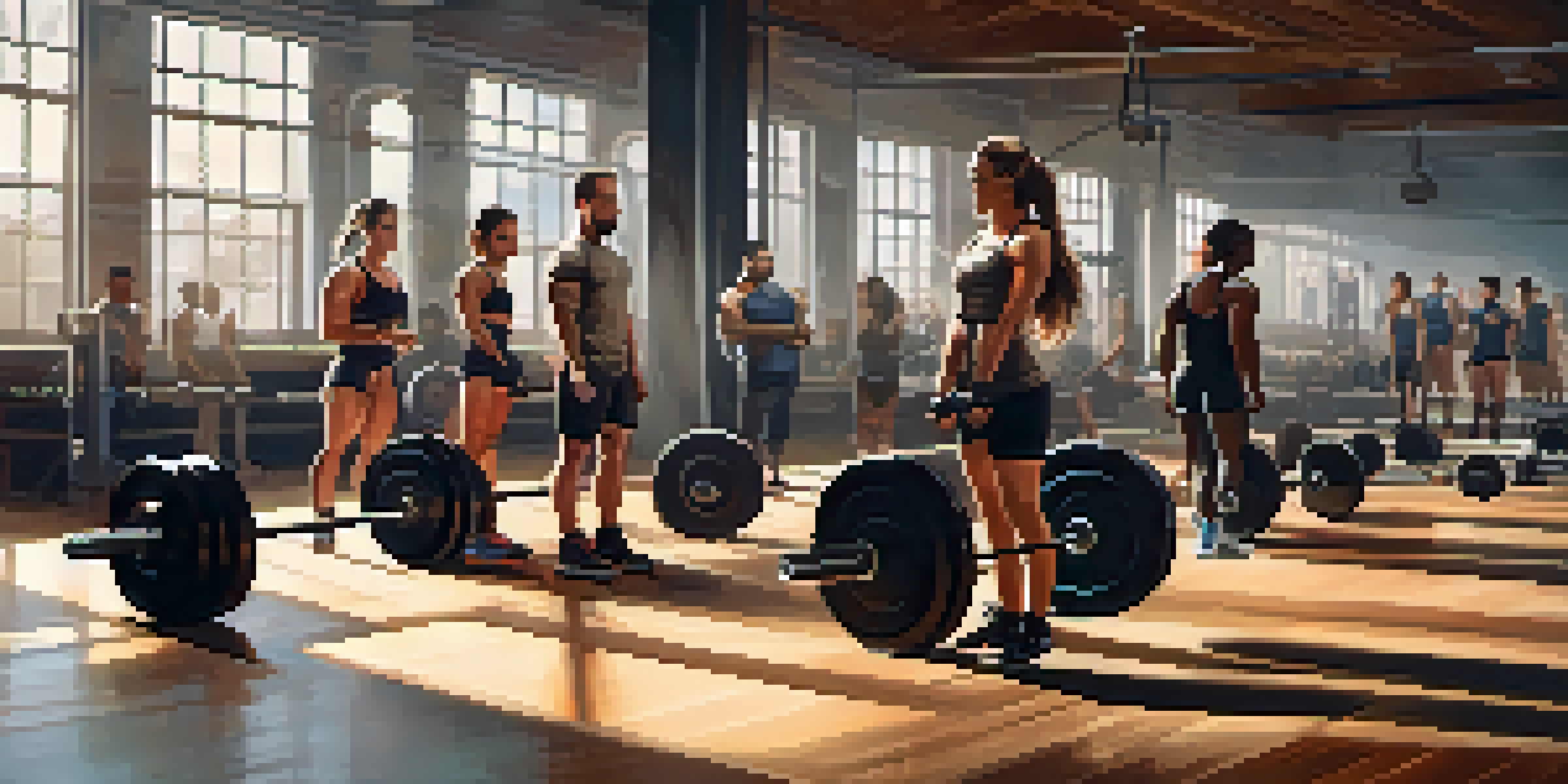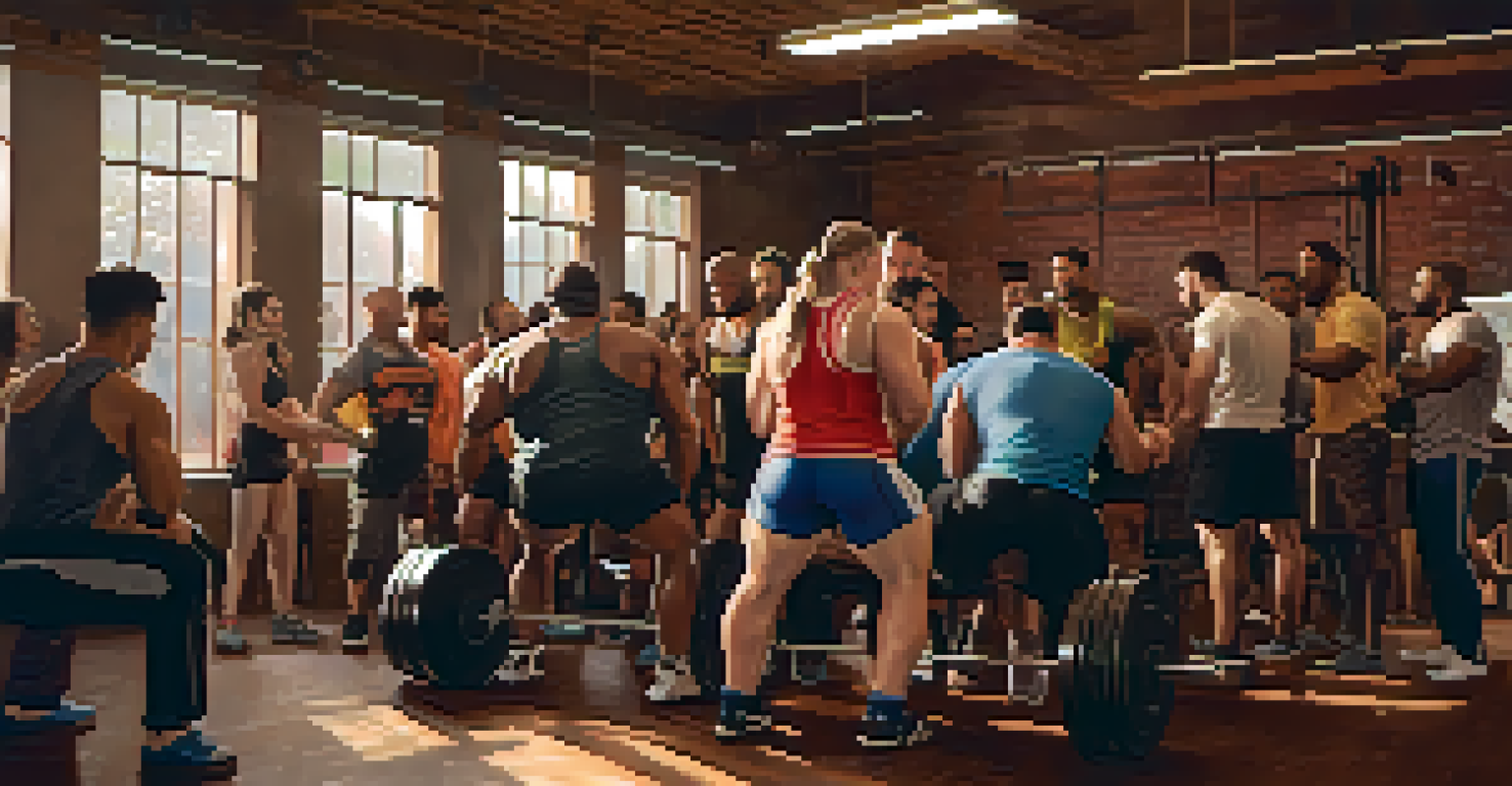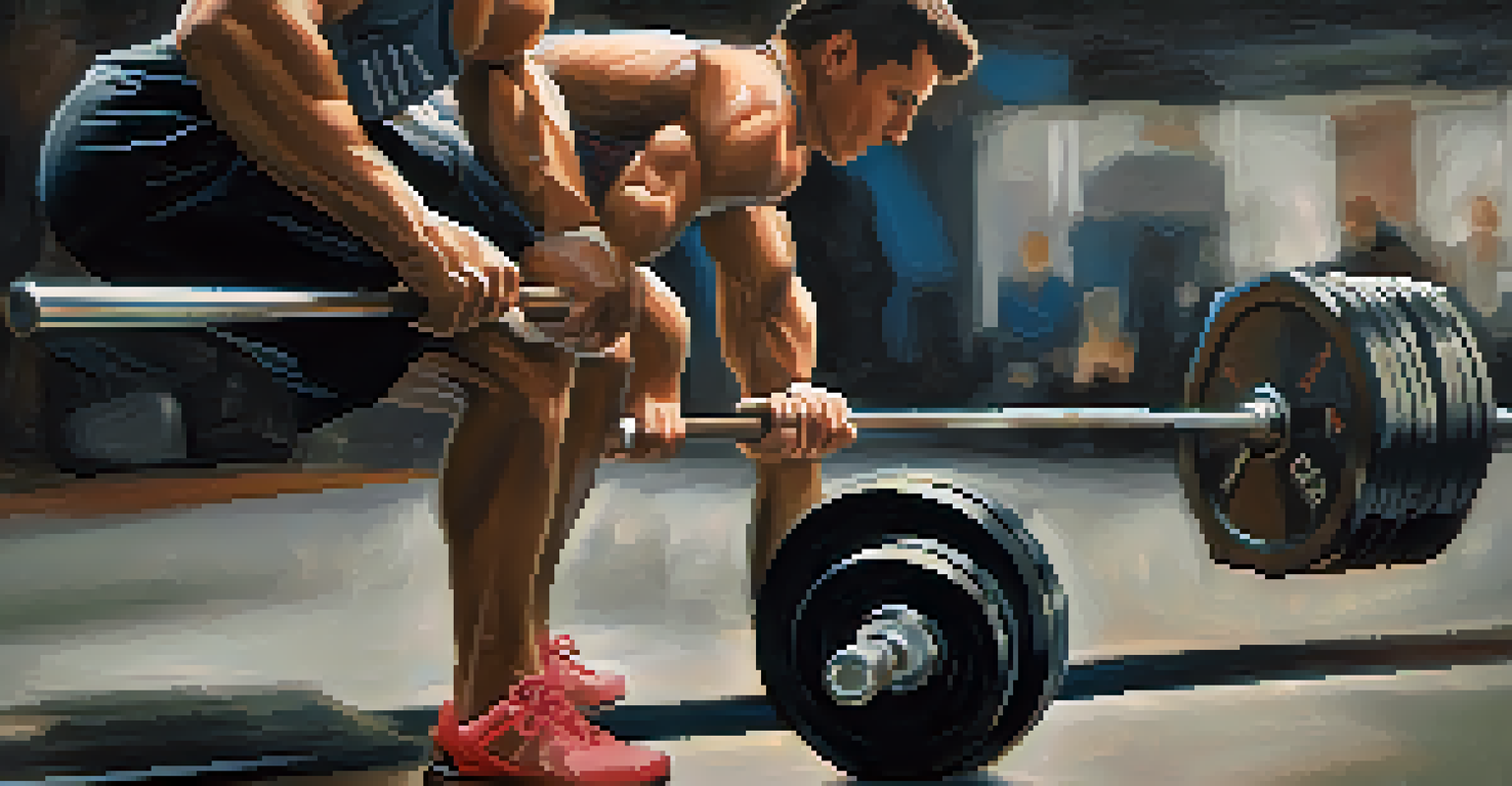Body Image Struggles in Powerlifting: A Personal Account

Understanding Powerlifting and Body Image
Powerlifting is a sport that focuses on maximal strength in three lifts: the squat, bench press, and deadlift. While it celebrates strength, it can also create a complicated relationship with body image. Many athletes find themselves caught between the desire to lift heavier weights and societal pressures regarding appearance.
Strength does not come from physical capacity. It comes from an indomitable will.
For many, the journey into powerlifting begins with the goal of becoming stronger. However, as one progresses, the focus can shift from performance to physique. This shift often leads to internal conflicts, as the athlete grapples with their self-image in comparison to others in the sport.
Understanding this dynamic is crucial for anyone involved in powerlifting. Recognizing how body image affects performance can help athletes maintain a healthy mindset and prioritize their strength goals over external expectations.
Personal Experience: Initial Motivation and Joy
When I first started powerlifting, my motivation stemmed from a desire to get stronger and healthier. The thrill of lifting weights and pushing my limits was exhilarating and brought immense joy. At that time, my body image was not a concern; I was focused on my performance and the supportive community around me.

However, as I began to notice the physiques of other lifters, I found myself comparing my body to theirs. The joy I once felt started to wane as I questioned whether my body type was 'appropriate' for the sport. This newfound focus on appearance was a stark contrast to the empowerment I initially experienced.
Body Image Affects Performance
Athletes in powerlifting often struggle with body image issues that can distract from their strength goals.
This shift in mindset was disheartening. I realized that powerlifting, a sport meant to celebrate strength, was leading me down a path of self-doubt and insecurity regarding my body image.
The Pressure of Social Media and Comparisons
Social media plays a significant role in shaping body image perceptions, especially in sports like powerlifting. Seeing perfectly sculpted athletes sharing their achievements can easily lead to unrealistic comparisons. It's easy to forget that most of what we see online is curated and often doesn't reflect reality.
The most powerful thing you can do is to love yourself and accept yourself as you are.
I often found myself scrolling through my feeds, feeling inadequate as I compared my progress to others'. This constant exposure to idealized physiques can create a toxic environment, making it hard to focus on personal goals. Instead of celebrating my milestones, I began to fixate on how I measured up against others.
Awareness of this pressure is the first step towards combating it. By curating my social media experience and following accounts that promote body positivity, I began to shift my focus back to strength and progress rather than appearance.
Redefining Strength Beyond Physical Appearance
As I continued my powerlifting journey, I realized that strength goes far beyond physical appearance. The true essence of powerlifting lies in the ability to lift heavy weights and overcome personal challenges. Focusing on this aspect helped me shift my perspective on body image.
I started to celebrate my achievements, whether it was hitting a new personal record or mastering a difficult lift. This celebration of strength helped me appreciate my body for what it could do rather than how it looked. It was a powerful reminder that every lifter has a unique journey and that our bodies are simply tools for achieving our goals.
Community Supports Mental Health
Connecting with fellow lifters fosters a supportive environment that encourages open discussions about body image and performance.
Embracing this mindset allowed me to cultivate a healthier relationship with my body. I learned to value my strength and resilience, which became more important than conforming to unrealistic standards.
Building a Supportive Community
One of the most beneficial aspects of powerlifting is the community that surrounds it. Connecting with fellow lifters who share similar experiences can be incredibly uplifting. This supportive environment fosters a sense of belonging and encourages personal growth.
When I started sharing my struggles with body image within my lifting community, I was surprised by the response. Many others had faced similar challenges, and discussing these issues openly helped us all feel less alone. This camaraderie transformed our conversations from superficial comparisons to deeper discussions about performance and mental health.
Being part of such a community reinforced the idea that we are all on our unique journeys. Celebrating each other's wins, regardless of body type, helped shift the focus from appearance to strength and resilience.
Practicing Self-Compassion and Acceptance
As I navigated my body image struggles, I learned the importance of self-compassion. Accepting my body for what it is, while still striving for improvement, became a crucial part of my journey. Practicing self-kindness helped me develop a healthier mindset around lifting and body image.
I began to replace negative self-talk with affirmations that celebrated my strength and progress. This practice not only improved my self-image but also enhanced my performance in the gym. When I focused on my capabilities rather than my appearance, I felt more empowered and motivated.
Self-Compassion Enhances Strength
Practicing self-compassion allows lifters to focus on their capabilities, leading to improved performance and a healthier body image.
Self-compassion is a continuous journey, and it requires ongoing effort. By being patient and kind to myself, I learned to embrace my unique powerlifting journey and appreciate my body for its strength and resilience.
Embracing the Journey: Finding Balance
Ultimately, my experience in powerlifting taught me that balance is key. While it's natural to experience body image struggles, it's essential to focus on overall well-being and performance. Finding harmony between lifting, nutrition, and self-acceptance has become my guiding principle.
As I continue to lift, I remind myself that every journey is different. It's important to celebrate progress in all its forms—be it a new personal record or simply feeling more confident in my body. Embracing this mindset has allowed me to enjoy powerlifting without the constant burden of comparison.

In the end, the journey of powerlifting is about more than just physical strength; it's also about mental resilience and self-acceptance. By prioritizing balance, I have discovered a more fulfilling and empowering approach to both lifting and body image.